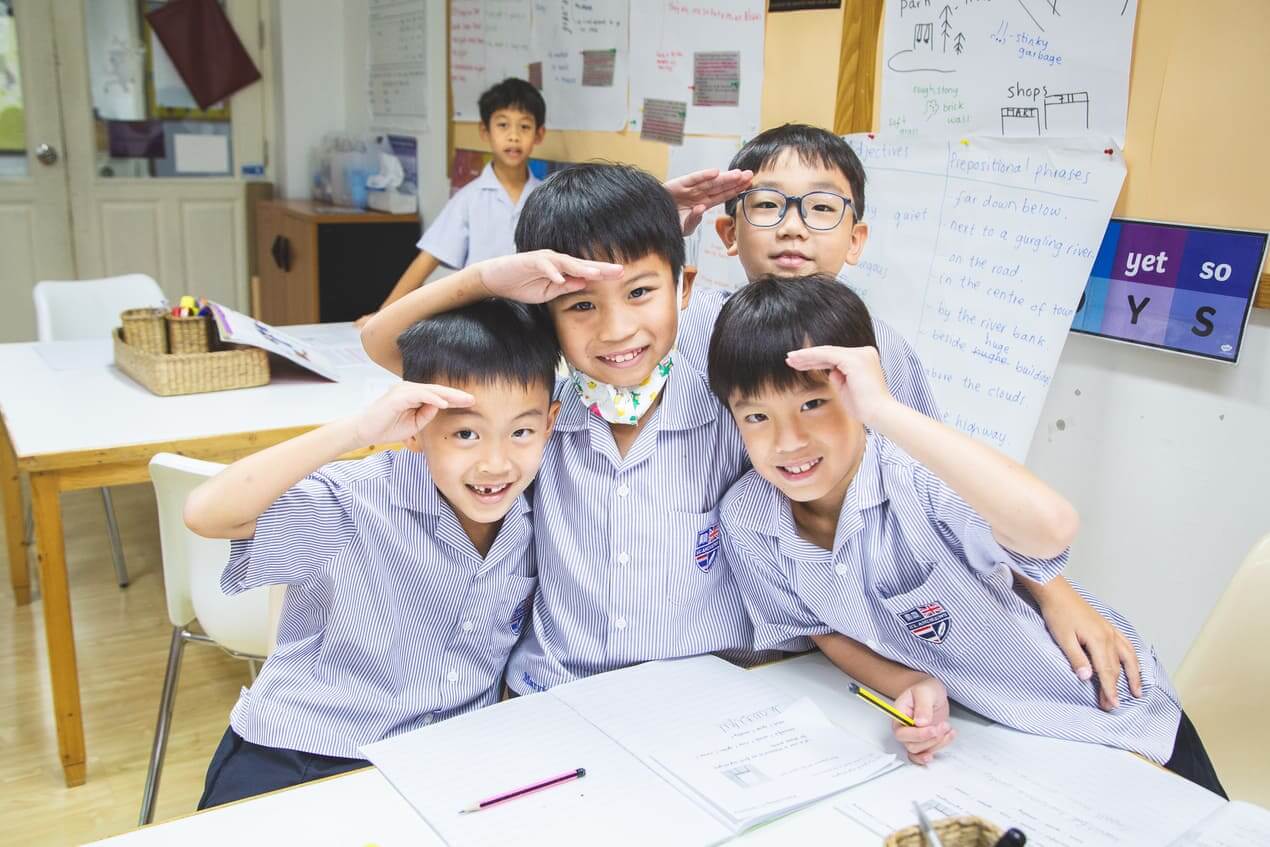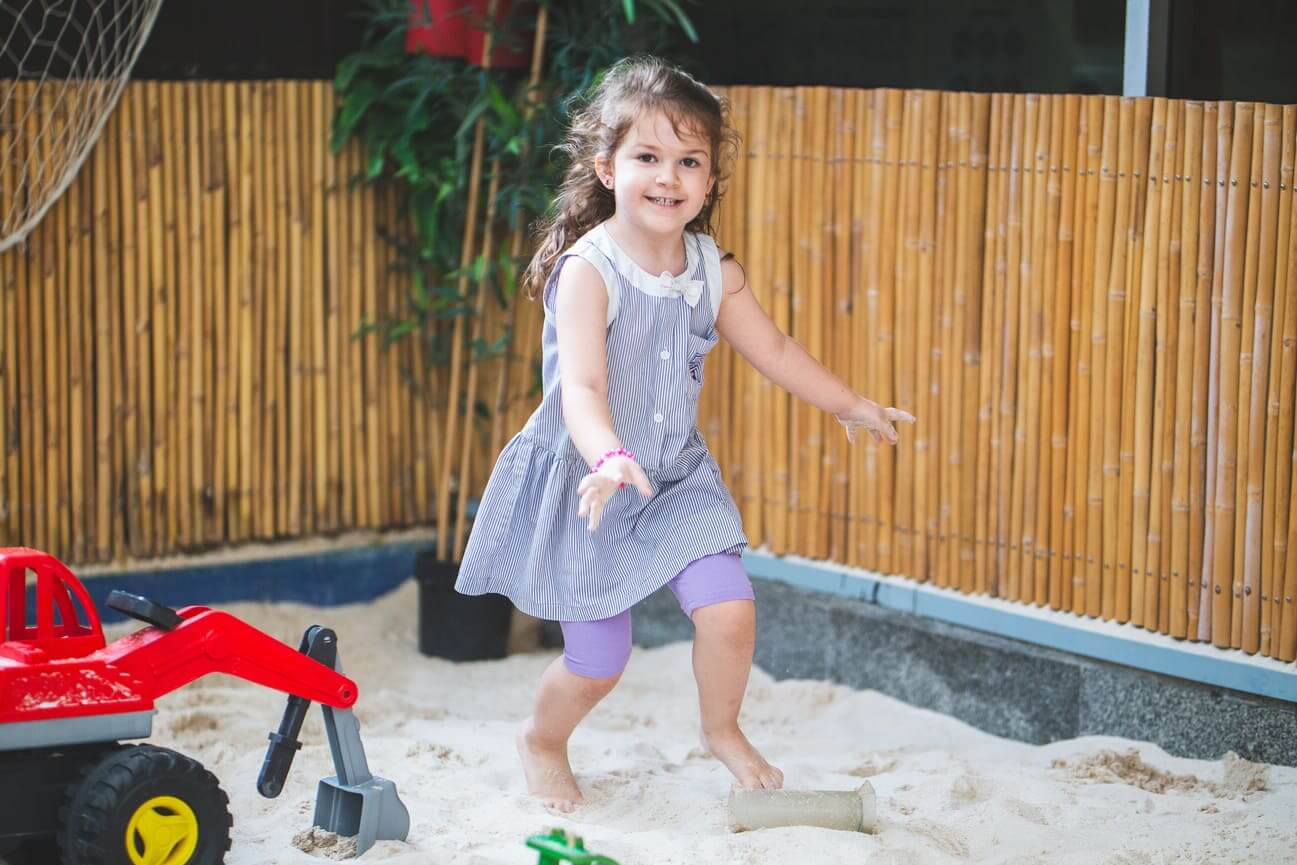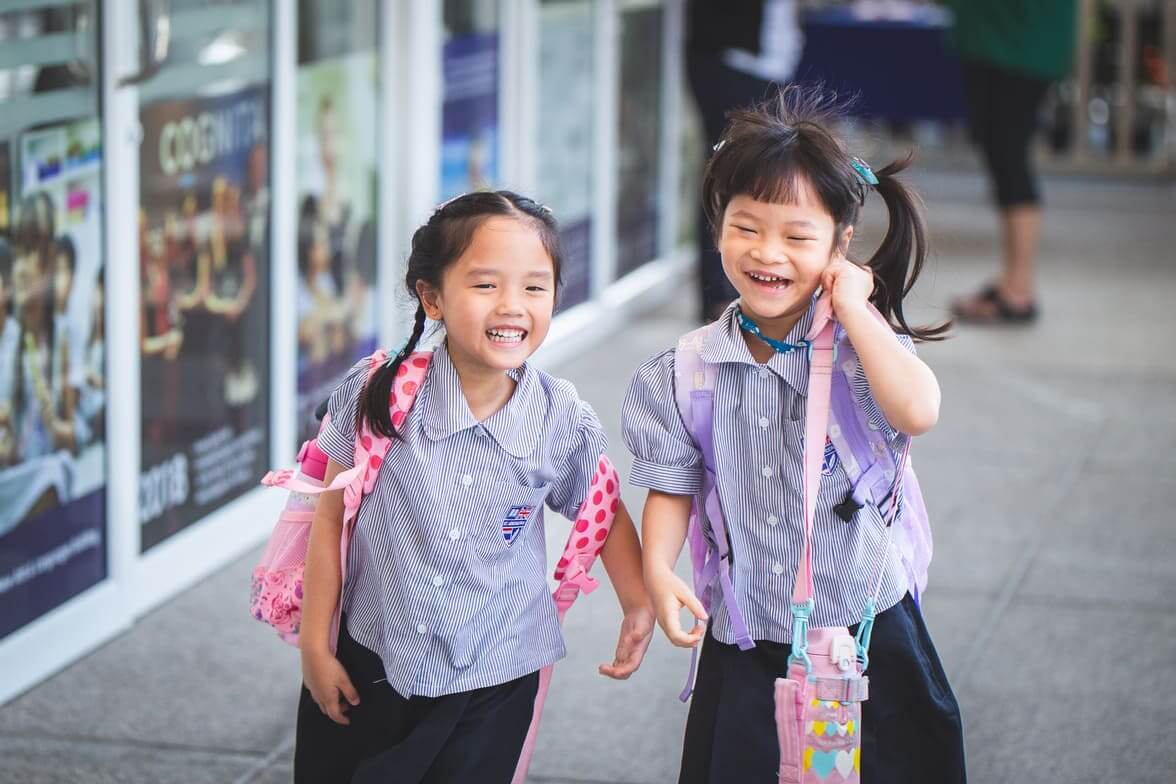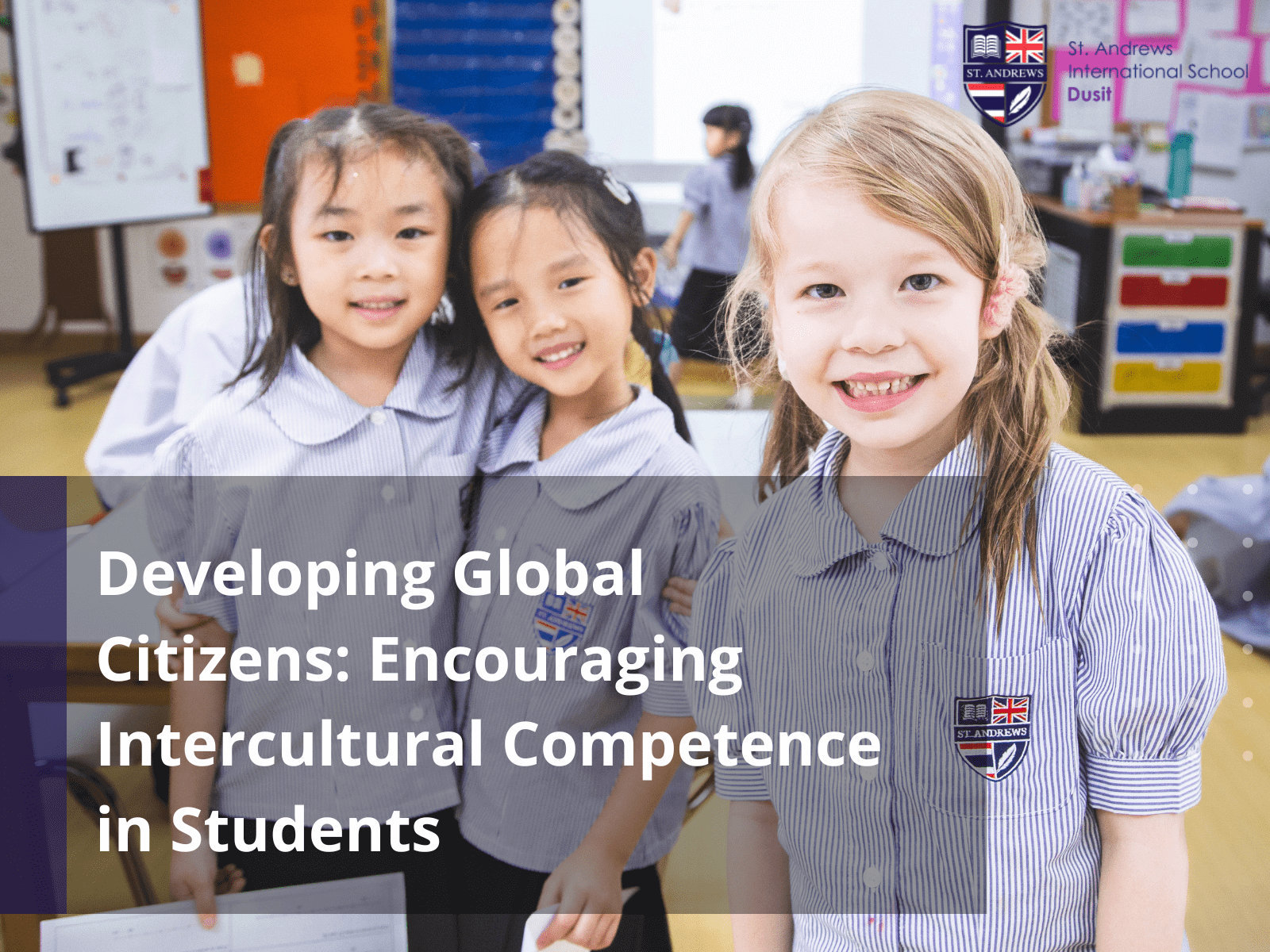Here at St. Andrews International School Dusit, we’re responsible for moulding young minds entrusted to our care to become contributing members of society not only in this country but also the world.
We’ll educate these young minds in ways that tap into their full potential while instilling in them the sense that they’re part of something bigger, like they’re citizens of the world rather than citizens of fragmented countries.
We’re able to achieve instilling intercultural competence among our primary school children through our international school’s patented holistic system of learning.
Why Develop Your Children’s Intercultural Competence?
Young people should develop intercultural competence to prevent petty tribalism and practice inclusivity, and who better than an international school like St Andrews Dusit to help them learn about it. It helps ensure their future with the inevitability of globalisation.
Intercultural competence is as important a facet of a St. Andrews child’s holistic development as it is to learn socio-emotional skills to find balance and success in both home and school.
The end goal of St. Andrews Dusit for the children under their care is to help them achieve multi-faceted development on all fronts, resulting in a wholly developed adult.
“A citizen of the world is a person who’s at home in any country and whose loyalty lies with globalisation and making the world smaller for different peoples.” (Teacher Quote)
As its name suggests, holistic learning involves having the youngsters under its care—children aged 2 to 11—learn not only academics but also develop their passion through sports and extracurricular activities as well as co-curricular activities while also minding their socio-emotional and community development.
The whole or entirety of their being gets developed, thus allowing them to gain direction after excelling in academics or showcase resiliency in the face of hardship.
They’re also able to understand the importance of intercultural competence as global citizens in an increasingly global workplace.

What’s the Value of Becoming a Global Citizen?
A global future awaits everyone in today’s interconnected world. It’s a small world after all, and it’s just getting smaller and smaller as time passes by.
Preparing the children of today to become global citizens of tomorrow is of the utmost importance so that they won’t feel left behind by the times as they grow up into adulthood, armed with education and cultural training fit only for the bygone age.
We’re currently at the forefront of the Information Age, where the world continues to become smaller and smaller due to the influence of the Internet and the ever-changing face of global politics.
Our educators wish to instil upon the youths a feeling of inclusiveness by learning inside an all-inclusive environment free of tribalism, xenophobia, bigotry, discrimination, and jingoism that are also learnt behaviours themselves.
The children of St. Andrews Dusit should get used to sharing cultural backgrounds with each other in a cultural melting pot not limited to one’s nationality, race, or ethnicity.
The teachers will also make sure every culture of every child is valued and respected, which fosters cross-cultural understanding and avoids culture shock and the clash of different values. This, in turn, enhances their educational experience at even such a young age.
Intercultural Competence Has Become a Critical Aspect of Education
The current global landscape dictates that promoting global citizenship is a must, hence the formation of coalitions like the European Union (EU) or the Association of Southeast Asian Nations (ASEAN). United we stand and divided we fall.
The children of St. Andrews Dusit will be taught the values of a global future as part of their holistic education. They’ll be the type of future leaders who won’t be satisfied with doing the bare minimum.
We’ll help them develop advanced emotional maturity, socialisation skills, and the benefits of hard work and patience towards fulfilling their potential as goal-oriented individuals.
In terms of intercultural competence, they’ll also be taught to value and respect people as individuals and as part of another culture, nation, or ethnicity so that they could cooperate together towards common goals—i.e., mutually beneficial goals.
As would-be global citizens, the children will be educated about each other’s cultures, religions, beliefs, morals, and decorum with mutual respect.

How Our International School Teaches about the Reality of an Interconnected World
Intercultural competence refers to a person’s ability to appreciate, understand, and effectively communicate with people from different backgrounds and cultures.
Integrating intercultural competence in our international school’s curriculum takes many forms, and they include incorporating multicultural perspectives and literature in our pupils’ social studies and reading classes as well as offering cultural exchange programmes.
Thus, our young learners in St. Andrews will be equipped to have an open mind about other cultures and, in turn, be exposed to other children curious about their culture.
The young minds of St. Andrews Dusit will also be taught social and emotional development that will give them the self-confidence to socialise on campus then extend that maturity towards social situations involving people from different cliques or groups.
Do not underestimate a child’s capability of maturation. They can learn quite a lot through advanced social and emotional development that gives them self-confidence in social situations.
Their regular social interaction with schoolmates should then serve as their building blocks towards deepening their bonds with their new friends by opening their eyes to cultures other than their own.

The Skills Required for Developing Intercultural Competence
The skills required to develop intercultural competence include the ability to communicate effectively across cultures, having more patience and understanding of each other, and recognising plus respecting cultural differences.
Their social skills training will lead to more goal-oriented decision-making that avoids or unlearns the pitfalls of bigotry, discrimination, stereotyping, and closed-mindedness.
In fact, by developing their socialisation skills from the friendship level to the intercultural level, they’ll become more resilient in facing life challenges because they’ve effectively strengthened their bonds with others and society as a whole.
They’ll also get to fight bigoted thinking through education of other cultures since bigotry usually originates from ignorance, lazy generalisations, and false preconceptions.
The best way to avoid ignorant preconceptions of other cultures different from your own is by exposure to them with an open mind. Through intercultural competence, your children are less likely to stereotype and more likely to deal with other people on an individualistic basis.
What We Recommend Next
We at St. Andrews Dusit are dedicated to helping children develop into successful leaders in the future by giving them pertinent skills like intercultural competence for a global tomorrow. They’ll realise their full potential and become contributing members to a worldwide society.
They’ll also avoid missteps like tribalism, jingoism, xenophobia, bigotry, and intolerance by treating their fellow men and women as equals and siblings belonging to a global country.
St. Andrews International Primary School Dusit is part of the Cognita School Group. Cognita is itself a global institution that operates various schools from Europe, Asia, and the Americas.
If you’re interested to see our campus and the international-grade education we offer in person, just book a personalised school tour at St. Andrews Dusit. Alternatively, you may choose to go to our website and click on the virtual campus tour to learn if we’re a perfect fit for your child’s education from the comfort of your home.



